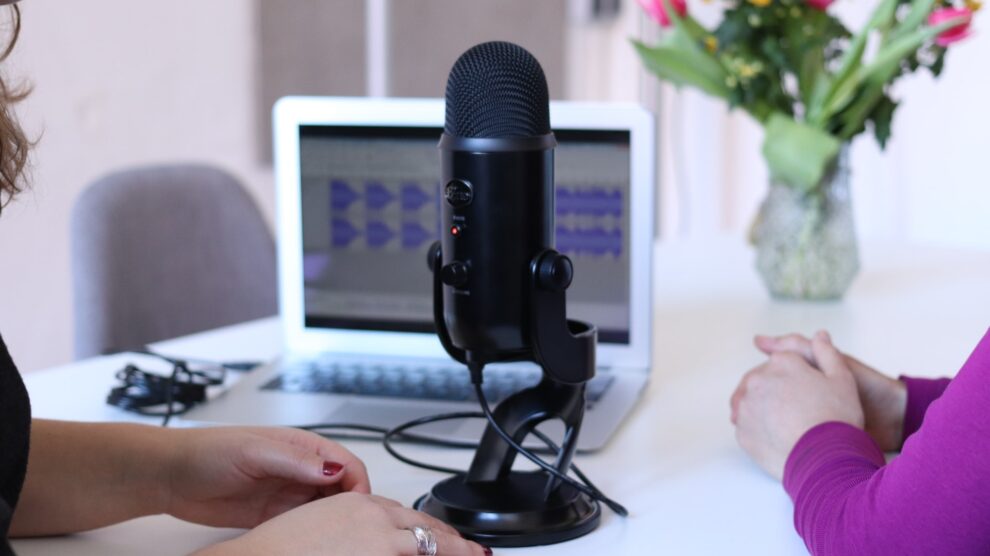Starting a podcast may seem like the easiest thing in the world. All you’ll need at first in setting up your own podcast could be as basic as having your own smartphone and having access to the Internet and a podcast app of any kind.
At first, it might seem like that’s all you need to get going, but in the long run you’re going to need a little bit more to not only start a professional podcast but to also ensure that it becomes a success.
In order to start a podcast, you’re going to first of all source out an idea for your podcast; let’s call this, idea conceptualization. This is the first stage you need to go through when starting your podcast.
You will need an interesting idea or topic that your podcast will be centered around. This idea or topic could revolve around a lot of lifestyle conversations or a podcast about health, movie reviews, conversations surrounding politics and a whole lot more.
To start the podcast, you can begin by using the most basic podcasting equipment you can find. Set up your podcast online by using any website or app that houses podcasts, whether it’s Apple podcasts on iTunes or Google podcast or even apps like Anchor – the choice is yours.
How to Start a Successful Podcast (7 Easy Steps)
There are a few steps that need to be covered if you intend to start a successful podcast. This goes beyond using just your phone to record the podcasts. You will need some equipment, your ideas, a target audience and a bulletproof plan that will help with the promotion of the podcast.
Here are a few steps to follow for starters:
1. Ideas Ideas Ideas:
This first step requires you to have an idea of what you want your podcast to be like. Do you want it to be a one man show or do you want to have a co-host or even co-hosts. Do you want to bring in guest hosts or people to interview in each episode of your podcast?
There’s a number of things to think about, but first, you need to decide what kind of podcast yours will be. You need to find your niche at the very start so that you know how to reach a particular audience type.
Your topic needs to be something you can keep doing for a long time and it has to be something you’re passionate about.
2. Equipment
Buying equipment for your podcast is a solid business investment and it is also a way of investing in yourself and your talent. At first, you really don’t have to break the bank by buying equipment you can’t afford, but you also cannot start out using equipment that doesn’t give you good sound quality.
Part of starting a successful podcast is having the right sound that convinces people you’re professional. The last thing you need is your audience straining their ear drums to listen to listen to what you have to say.
In essence, you need to go for affordable podcast equipment like a microphone, computer, headphones and other advanced equipment for when you’re ready to go bigger.
3. Find Your Voice and your audience
It may seem like podcasts are easy to start and easy to manage, but it isn’t that simple. There will be some hurdles along the way. You can’t expect your first few episodes to be great, unless you already have some experience.
You need to find your voice and be comfortable in what you’re doing or talking about. Another factor is your audience. You will need to do a lot of promotion to find the audience that you’re targeting.
Unless you’re a celebrity, you may just have a few listeners to begin with, but no matter what you do, don’t give up. Share links of your podcast episodes with friends and family, and they in turn will share with their own friends and family.
4. Use SEO for your podcast
Search engine optimization is a major component of promoting your podcast or basically anything that you do on the Internet. If you use iTunes or Google podcasts, SEO is important since they are both search engines.
SEO works in a way that allows you to make use of keywords so that your podcast can be ranked higher, making it easier for your podcast to be found by an audience. The keywords you use should be found in the podcast title, subtitle, and description.
5. Make Your Podcast Lively
Your podcast has to leave the audience wanting more, even from the very first episode. Do what you need to do to be a great podcast host. If you’re getting a co host, make sure you get one that complements you and what your podcast stands for.
Having guest hosts can make the topic conversation more interesting and listen worthy.
6. Consistency
Consistency is key to keeping your audience engaged.
Plan how many episodes you will release per week or daily. Stick with your podcast itinerary and don’t deviate if it’s something you can avoid.
7. Monetize
There comes a point where you will be able to monetize your podcast. This means you’ve followed all the other steps and you’re on your way to having a successful podcast. There’s no rest from here on out.
Being able to monetize your podcast only means you need to produce better and more quality content. You also need to be even more consistent for your audience.
SWOT Analysis of your Podcast
SWOT analysis basically stands for strengths, weaknesses, opportunities, and threats. It is a strategic way to keep your podcast business on the up and up, this means that you will be tracking all the necessary factors needed to make sure your podcast is on the road to ultimate success.
You will need to take note of the strengths of your podcast. It could be the good equipment you have, or that could even be a weakness, and then you’ll have to improve that weakness in order to stay on the path to success.
The opportunities refer to other ways you can make money off your podcast. If you have a lot of listeners, your podcast could even start offering advert slots to people who want to promote one product or another. There are many opportunities you will need to keep track of.
You will also need to keep an eye on any factor that could threaten the success of your podcast, whether that be from internal or outside forces. Inconsistency, for example, could in itself become a major threat to achieving long term success.
Carrying out a SWOT analysis could be highly beneficial to a beginner. It will help you achieve steady growth when it comes to your ideas, topics, audience gain, and so much more.
FAQ
What kind of content should i create for my podcast?
Your podcast content could be anything you find interesting but should be a topic you’re passionate about. It could range from lifestyle topics to topics that are more political in nature. The content you produce is up to you and also determined by your target audience.
Whatever your content is, make sure it is appealing to your audience and make sure it is something you can produce aesthetically well and clearly.
Will Your Audience Prefer Short or Long Podcast Episodes?
At first, the length of your podcast should be determined by your topic of interest. You can’t have a one-hour podcast on a topic that people find boring. Start with an interesting topic and an average time length.
After your audience starts to grow, you can figure out what time duration works best for your topics and your audience.
Conclusion
The basic thing to note is that you need to start with good equipment. You also need to acquire an audience, figure out the focus of your podcast, and when to schedule it. There might be times when you want to give up, but by being consistent you will be well on your way to having the successful podcast you’ve always wanted.
The essential things you’ll need in case you can’t afford the necessary equipment is a microphone of some sort and your laptop. As you grow your podcast, you can improve your equipment.





